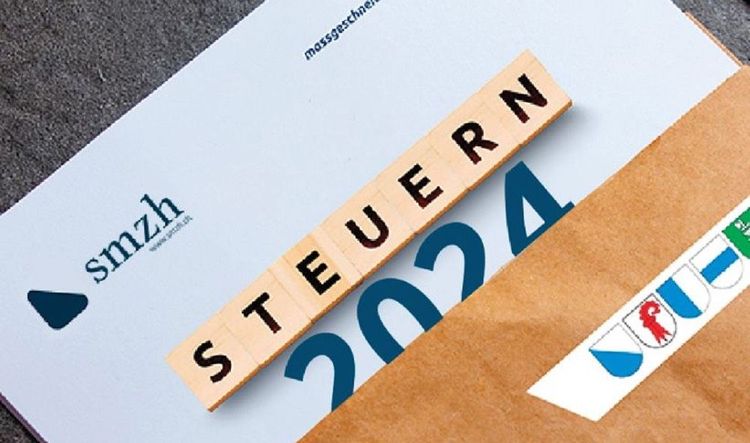Owning real estate in Switzerland offers numerous tax advantages, but also entails certain obligations.
Simply upload your tax documents using our online tool, and our experts will get started with the process right away.

The following details refer to the existing tax system, which the Swiss electorate voted in favor of reforming in the fall of 2025. The reform is likely to take effect starting in tax year 2028. It includes the removal of the imputed rental value as well as adjustments in the tax deductability of mortgage rates and other costs.
Until the reform takes effect, homeowners must continue to declare the imputed rental value and can continue to make various home-related deductions. On this page, we explain the key tax guidelines with regard to real estate and home ownership.
In Switzerland, homeowners are required to declare the so-called imputed rental value as income for tax purposes. The imputed rental value represents the hypothetical rental income of owner-occupied property. Even though owners do not actually pay rent, this amount is treated as taxable income and is subject to income tax.
The imputed rental value is estimated by the tax authorities based on the actual market value of the house or apartment. This value is aligned with the rent that could be obtained for a comparable property in the same region. Typically, the imputed rental value is adjusted on an annual basis.
Notional rental value of an owner-occupied property that is taxed as income.
Homeowners can deduct maintenance costs from taxable income if these renovations help preserve the value of a property. A distinction is made between value-preserving and value-increasing renovations, as they are taxed differently.
Value-preserving renovations such as paint work, repairs, or the replacement of roofing or windows can be deducted from taxable income. These renovations ensure that a property retains its value and can continue to serve as a residence.
Value-increasing renovations such as the enlargement of a cellar or the expansion of a house increase the value of a property. These costs cannot be deducted, as they increase the value of a property and therefore are not considered to be merely value-preserving.
Even if imputed rental value is liable to tax, homeowners can make various deductions that reduce their taxable income. This includes deductions for renovations, interest on mortgages, and maintenance costs.
Renovations, mortgage rates, maintenance costs, and other property-related costs.
In the fall of 2025, the Swiss electorate voted to abolish the imputed rental value. Likely starting in tax year 2028, the imputed rental value will no longer be taxed. At the same time, maintenance costs and mortgage rates can no longer be deducted from taxable income. Learn more about this important reform and its impact on homeowners in our blog article.
Energy-efficient measures such as the installation of solar panels or heat insulation of buildings may also be deducted. The same applies to costs related to the preservation of historic buildings or the renovation of buildings under landmark preservation, as long as such costs preserve the long-term value of these buildings.
Energy-efficient measures (e.g., solar panels, insulation) and monument preservation.
Homeowners benefit from the significant advantage of being able to deduct mortgage rates. Interest costs on mortgages can be deducted from taxable income. This leads to a direct reduction of the tax burden, representing one of the most important tax deductions related to residential property.
All interest expenses incurred in connection with a mortgage on residential property can be fully deducted from taxable income. This applies to interest on both the first mortgage and any subsequent mortgages or home loans used for the purchase or renovation of the property.
Interest on mortgages and loans that were taken out for the purchase or renovation of residential property.
Call us or make an appointment online for a non-binding first conversation. We look forward to hearing from you.

